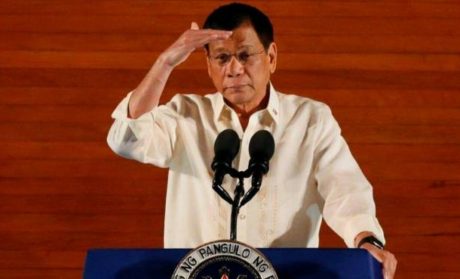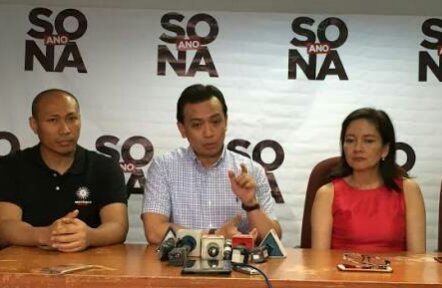
The second State of the Nation Address (SONA) of Philippine President Rodrigo Duterte was a hit. Short of trawling the technical report that underpins it, that’s really the only key takeaway from the show Duterte put on yesterday, the 24th July 2017. It was a speech validated by applause and social media engagement around the “worldwide-trending” hashtag #SONA2017.
Like a good Game of Thrones episode, the Duterte Show delivered a media feast — content that appeals to every vestige of our reptilian complexes, sex, drugs, and rock-n-roll with a dash of the important issues as footnotes. The same formula that makesThrones a hit is behind what makes Duterte a hit. Indeed, monitoring my social media timelines, I find it quite amusing to see Tweetizens who, on one hand, would be gushing about the latest Thrones episode and, on another, be gnashing their teeth in outrage over Duterte’s antics.
Duterte is a product of the system enacted by the “revolutionary” government of President Cory Aquino in 1987. The 1987 Constitution was hurriedly ratified to legitimise what, until then, was an illegal government. So effective was this technique of siezing power that it was done again in 2001 (and attempted many times after). This Constitution put the “people’s will” on a pedestal so much so that there was conceptual room (with a bit of creative lawyering) to legalise anything given a stamp of approval by a critical mass of people shouting loud enough on any Manila street.
Like any leader of any democracy, Duterte’s power — his ability to push things through Congress and influence the judiciary — comes from his popularity. But unlike the popularity of traditional Yellow leaders, his is a popularity legally channeled through institutions. He was elected fair-and-square (albeit likely with a big enough margin to mitigate the effects of alleged electoral fraud perpetrated by his main rival in the 2016 elections). And he sustained that popularity by simply being himself.
To this day, Duterte’s popularity-enabled power manifests itself and is applied legally — channeled through the halls of Congress where, in a recent example, Martial Law, the erstwhile political bogeyman of yore, was given a renewed spot under a positive light as a way forward to building a strong nation. As far as we have observed, he has never hinted at extra-constitutional means to push his agenda through. This is in stark contrast with the way adherents of the Yellow Camp (a.k.a. the Philippines’ Liberal Party) think. To the Yellowtards, extra-constitutional means to get their way are always an option. They’ll “take to the streets” at the drop of a hat or, more specifically, at the slightest hint that they feel their self-bestowedentitlement to power is threatened.
Former president Benigno Simeon ‘BS’ Aquino III embodied this temperamental brattiness often mistakenly attributed only to young “millennials”. In the lead up to the 2016 presidential elections, BS Aquino threatened to launch ‘people power’ if Duterte and (then VP candidate) Bongbong Marcos won the election…
But what is more worrisome now is that President Benigno Simeon Aquino III (PNoy) said he will lead a people power uprising if a DU30-BBM win happens. This is not an empty threat. He might not have people since his favorability rating is now zero in NCR and his Laglagan Party will no longer be there. Unfortunately, his core group remains. These bastards think the Philippines is all about them and all for them. They created a bubble economy to prop up their image, but really not to help the country. They will now incite havoc to burst that bubble. They can do that easily. PNoy has demonstrated his capability for treason just to advance themselves as he did in his now-infamous Bangsamoro Basic Law (BBL) project.

Key Opposition Senators Antonio Trillanes, Risa Hontiveros, and another guy.
This was the fatal error of the Liberal Party in 2016 and the reason they continue to languish in inutile chaos today. The current Opposition led by the Yellowtards’ “prayerful” lot continue to believe in an entitlement to win in a “democracy” premised on goodness as defined by religious scripture and dogma. They lack a scientific approach to winning elections and sustaining popularity. They would rather believe in hocus pocus ideas on why they ought to be in power rather than on sound reasons why they lost the Philippines and continue to fail today.
This lesson should not be lost in Duterte’s government either. Rather than rest on their laurels, Team Duterte should step up and be better than they are today. For all the president’s men, the key challenge lies in becoming more organised, coherent, and scientific in a concerted effort to sustain and secure the enormous political capital their boss possesses today. Unlike the Yellowtards who failed to invest in getting to know and understand their enemy, it seems that Team Duterte have a clear picture of who their enemies are and what they are up against. That knowledge needs to be used wisely.

No comments:
Post a Comment